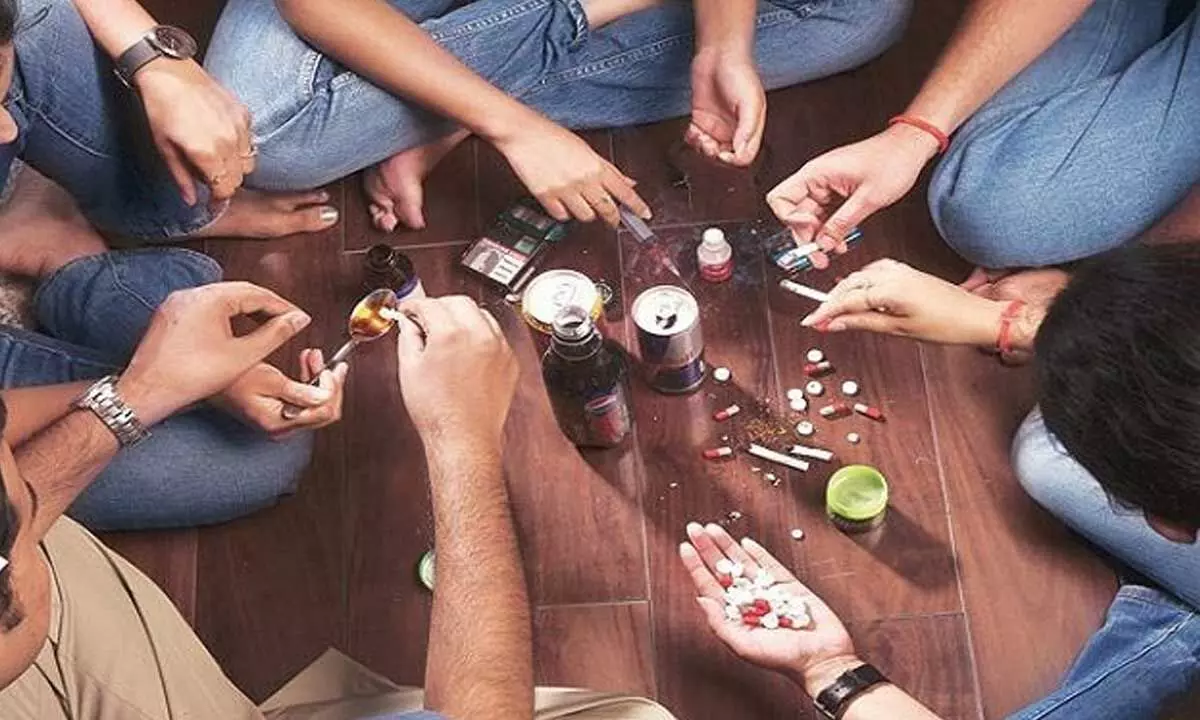Acceptance In Addiction Recovery

Addiction recovery is not just about breaking physical dependence on substances—it’s about healing the mind and embracing new patterns of thought and behavior. One of the most vital but often overlooked elements of successful recovery is acceptance in addiction recovery. At Prayas Sewa Samiti, one of the leading nasha mukti kendra in Dehradun, we emphasise the importance of helping individuals come to terms with their reality, which lays the foundation for long-lasting sobriety and emotional stability.
What Does Acceptance Really Mean?
In the context of addiction recovery, acceptance means acknowledging your addiction without denial, shame, or self-judgment. It involves coming face-to-face with the pain, mistakes, and consequences caused by substance use, while also recognising the need for change. Acceptance doesn’t mean giving up or becoming passive—it means taking full ownership of your current reality in order to move forward.
This concept is central to many recovery frameworks, including 12-step programs like Alcoholics Anonymous, which focus on admitting powerlessness over addiction as the first step. At Prayasrehab, we integrate psychological tools such as mindfulness, self-awareness, and emotional triggers recognition to foster acceptance.

Why Acceptance Matters in Addiction Recovery
The journey to recovery is often obstructed by denial, guilt, or anger. Without acceptance, these emotions can keep a person stuck in a destructive cycle. Here’s how acceptance in addiction recovery plays a transformative role:
-
Breaks the Cycle of Denial: Many individuals resist recovery because they believe they don’t have a problem. Acceptance brings clarity, helping them see how substance use impacts their lives and relationships.
-
Reduces Self-Blame: Guilt and shame often accompany addiction. Acceptance encourages compassion and understanding, which are essential for healing.
-
Builds Emotional Resilience: Accepting life’s challenges without turning to substances increases emotional strength.
-
Supports Long-Term Sobriety: When you accept your condition and its triggers, you’re better equipped to manage relapse prevention in addiction recovery and stay on track.
Acceptance vs. Resistance: The Internal Conflict
People struggling with addiction often fight an internal war between what they know is right and what their brain craves. Resistance can take many forms—minimizing the problem, blaming others, or refusing treatment. The longer someone resists the truth, the more painful the journey becomes.
Acceptance in addiction recovery ends this internal battle. It allows individuals to say, “This is where I am right now, and it’s okay to start here.” At Prayasrehab, we guide our clients in recognising the strength in acceptance—not as a weakness, but as a powerful first step toward freedom.
Tools That Encourage Acceptance
Recovery programs that focus on mental and emotional transformation often use specific methods to teach acceptance. Some of the most effective ones include:
-
Mindfulness Practices: Helps individuals observe thoughts and emotions without judgment, fostering emotional acceptance.
-
Cognitive Behavioural Therapy (CBT): Therapy for addicts encourages self-acceptance and healthier coping mechanisms.
-
Journaling and Reflection: Writing about one’s journey can bring clarity and allow room for self-acceptance.
-
Group Therapy: Sharing stories with others on the same path fosters a sense of community and mutual acceptance.
At Prayasrehab, our therapy sessions are built to empower clients with these tools so that they can internalize acceptance as part of their identity.

How Acceptance Shapes Future Recovery Steps
Once acceptance is in place, individuals can then begin setting realistic recovery goals. This includes identifying triggers, building a support system, and making healthier lifestyle choices. Without the clarity that acceptance provides, it’s nearly impossible to make meaningful progress.
For instance, someone who accepts that stress triggers their alcohol use can proactively develop stress-reducing techniques like meditation, exercise, or counselling in addiction recovery. Acceptance is the foundation that supports all other efforts in stages of drug rehabilitation.

Acceptance in Relapse Prevention
Relapse is often seen as failure, but with the lens of acceptance, it becomes a learning opportunity. Acceptance in addiction recovery allows individuals to acknowledge a relapse, acceptance in addiction recovery understand what caused it, and return to recovery without self-loathing.
At Prayasrehab, we educate clients on treating relapse as acceptance in addiction recovery, part of the journey to acceptance, not the end of it. Through acceptance, clients develop the courage to keep moving forward even after setbacks.
Acceptance Is Not Instant—It’s a Process
It’s important to note that acceptance doesn’t come overnight. It’s a gradual process that requires patience, support, and often professional guidance. Some days will be easier than others in acceptance of addiction recovery. What matters is a consistent commitment to face reality with honesty and compassion.
Family support, peer encouragement, and therapeutic intervention all play a role in nurturing acceptance. At Prayasrehab, our holistic programs are designed to cultivate this mindset every step of the way.
Conclusion
In the path to recovery, acceptance in addiction recovery is not just helpful—it is essential. It’s the gateway to self-awareness, healing, and growth. At Prayasrehab, we understand the psychological depth of addiction and offer comprehensive programs that nurture acceptance in a supportive and non-judgmental environment in addiction recovery. With a blend of evidence-based therapies and compassionate care, we stand as the best rehab centre in Dehradun to help individuals start a new chapter of life, grounded in acceptance and hope.